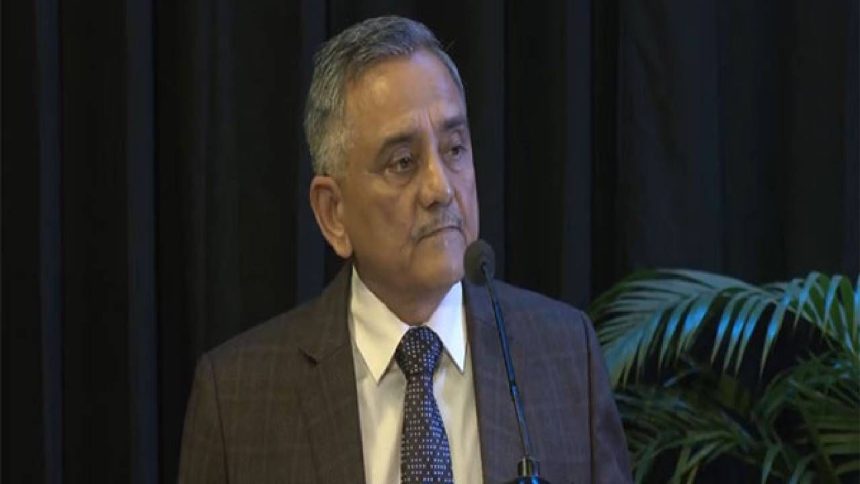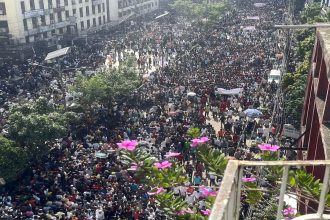
New Delhi: India’s Chief of Defence Staff (CDS) General Anil Chauhan shed light on “Operation Sindoor,” describing it as a pioneering non-contact, multi-domain mission that offers a glimpse into the future of warfare.
Speaking at the Shangri-La Dialogue in Singapore, General Chauhan revealed that the operation, which commenced with May 7 strikes on terror targets in Pakistan and Pakistan-occupied Kashmir, encompassed distributed force application, cyber and disinformation campaigns, advanced intelligence capabilities, and sophisticated network-centric operations.
General Chauhan emphasised that India’s approach to its relationship with Pakistan is rooted in a long-term strategy. He noted India’s significant progress on all metrics, economic, human development, and social harmony, compared to Pakistan since independence. He stated that while diplomatic overtures have been made, continuous hostility from Pakistan has led to a strategic disengagement.
“Now, on the India-Pakistan relationship, we are not operating without a strategy. When we gained independence, Pakistan was ahead of us on every metric, social, economic, and GDP per capita. Today, India is ahead on all fronts, economic performance, human development, and social harmony, despite our greater diversity. That didn’t happen by accident; it’s a result of long-term strategy. Diplomatically, we’ve reached out like in 2014 when the PM invited Nawaz Sharif. But it takes two hands to clap. If all we get in return is hostility, then disengagement may itself be a sound strategy for now,” Chauhan was quoted as saying by news agency ANI.
Highlighting India’s self-reliance in defence, the CDS pointed out that India leveraged indigenous systems like Akash during Operation Sindoor. “While Pakistan may have leveraged Chinese commercial satellite imagery, there’s no proof of real-time targeting support. India, by contrast, relied on indigenous systems like Akash, achieving success through effective system networking, integrating both domestic and foreign radars into a cohesive defence structure,” NDTV quoted him explaining.
He contrasted this with Pakistan’s potential use of Chinese commercial satellite imagery, for which he stated there was no proof of real-time targeting support. General Chauhan stressed the critical need for seamless real-time integration across air, land, and sea domains, underscoring the importance of robust networks for effective defence, NDTV reported.
A significant aspect of Operation Sindoor was the battle against misinformation, with 15 per cent of the mission’s time dedicated to countering fake narratives. General Chauhan called for a dedicated information warfare vertical, advocating for “fact-based communication, even at the cost of slower responses.” He confirmed that India’s air-gapped military systems remained secure during the operation despite minor disruptions on public platforms.
The CDS also touched upon the complexities of future warfare, including the downsides of automation and robotics, and the evolving role of Artificial Intelligence. He cautioned that fewer lives at risk might lead decision-makers to act more aggressively, and noted that military AI’s utility is currently limited by its reliance on open-source data. “It must be integrated into operations, wargaming, and intelligence gathering to become truly impactful,” he added.
During his academic engagement with global think tanks at the Dialogue, General Chauhan reinforced the importance of ‘Atmanirbhar Bharat’ (self-reliant India) in defence modernisation and championed jointness and integration as vital factors for battle-winning outcomes.










